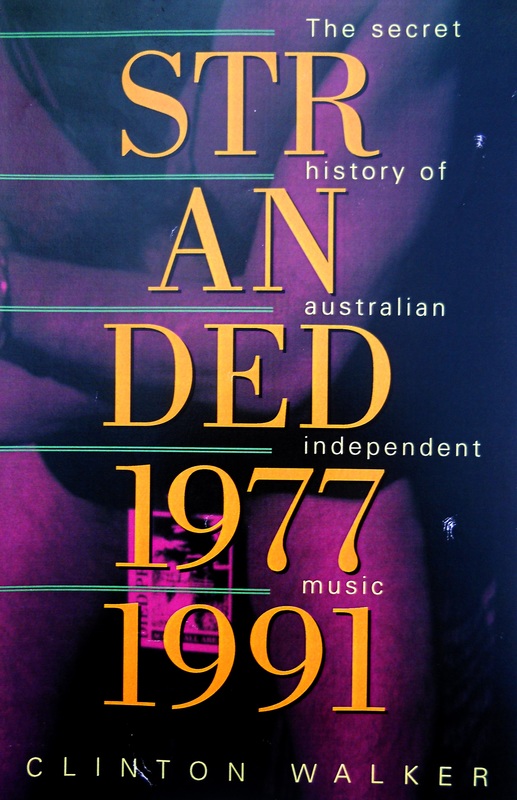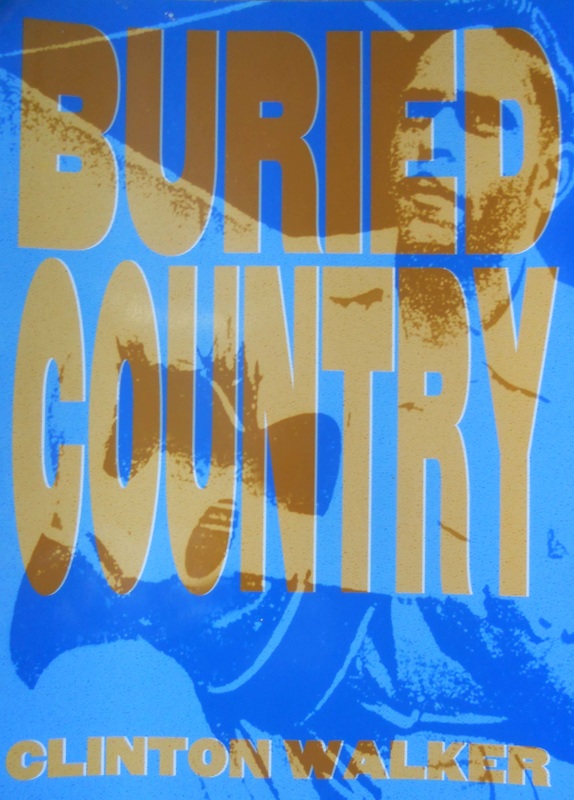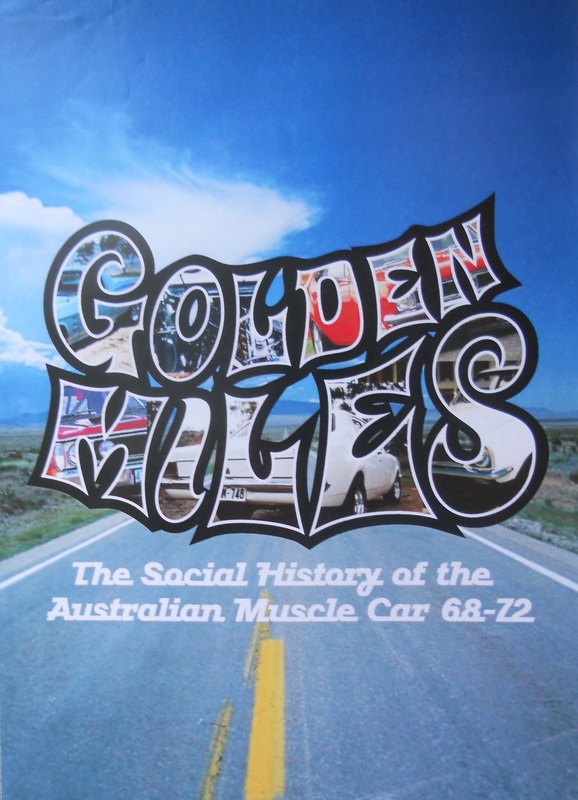after vinyl: The beginning of history
|
When I started out working on Highway to Hell in the early 90s, my models weren’t Australian. I probably didn’t consciously think about it much at all, really, I just wanted to write a great book. I still say it was such a great story I would have had to have worked hard to fuck it up! If pressed, I would still nominate Nick Tosches’ 1982 Jerry Lee Lewis biography Hellfire and Charles Shaar Murray’s Crosstown Traffic: Jimi Hendrix and Post-War Pop (1990) as two of my favourite rock books, and any rock biographer, any writer, would aspire to being as good as either of those titles. But there was so much more that doubtless unconsciously fed in to me too. I always loved Nik Cohn’s 1967 debut, I Am Still the Greatest Says Johnny Angelo, and it was a rock novel. And all the music writing that developed overseas in the 80s: Peter Guralnick’s trilogy on the roots, pioneers and icons; Gerri Hirschey’s Nowhere to Run (1984). As if Punk Never Happened. There was a definite upsurge towards the end of the 80s, after Greil Marcus, in 1987, edited the posthumous Lester Bangs hardback (!) collection, Psychotic Reactions and Carburettor Dung. Prestigious publishers like Faber & Faber and Picador were getting down and dirty with great books about New Romantics and Frank Zappa. There was Nelson George’s Death of Rhythm and Blues (1988), and Frederick Dannen’s Hit Men (1990). These were all hit reads for me. And then post-punk revisionism started to surface: Clinton Heylin’s From Velvets to Voidoids and Jon Savage’s England’s Dreaming (both 1991), Legs McNeil’s Please Kill Me (’97). The key to me was narrative. This is what Australian music books, to that time, didn’t seem to have a lot of – yet it seemed to me, obviously, to be one of the basic requirements for any great book. The bibliography, by that time, contained a little bit of everything: a few photo books, a few biographies; and memoirs, oral histories, potted histories, anthologies, encyclopaedias, academic collections, guidebooks. There was no less than two Johnny O’Keefe biographies, but both left a bit to be desired (and O’Keefe wouldn’t get the book he deserved till the fourth, in 2001, Damien Johnstone’s Wild One). There were little flash fires all throughout the literature, of course, but it was almost like as soon as the writing started getting good, it stopped. There was nothing long-form. Nearly all the books (mine included) were at best fragmented. I had to write a sustained narrative, obviously, and beyond that, atop a solid foundation of research, I wanted to try and fuse the central character with my own authorial voice, and have a bit of an original thesis. I admired my old sparring partner Andrew McMillan’s Strict Rules (1988). The story of the pioneering “Blackfella/Whitefella” tour of outback Aboriginal communities by Midnight Oil and the Warumpi Band, Strict Rules had a coherence, real narrative integrity, and even if you didn’t like McMillan’s trademark gonzo flights of fancy, it lent a presence of voice that few other Australian music books to that time had. I sort of admired Vivien Johnson’s Radio Birdman (1990), a curious hybrid of art theory and hagiography. I loved Age journalist Peter Wilmoth’s Glad All Over (’92). Glad All Over was more than just an oral history of Countdown, it was social history that sparkled like its subject. Rock writers are always supposed to love the Gonzos, New Journalism and the Beats, but my head was turned in the 80s by the dirty realism of Raymond Carver and by Brat Pack novelists like Jay McInerny and Bret Easton Ellis, and by the neo-noir of James Ellroy. Plus I’d read Joseph Campbell, Barbara Tuchman, a bit of film theory and post-modernism; I had plenty enough pretensions of my own without wishing to moonlight as a symbolist poet. When I pick up Highway to Hell now, it reads, in a way, exactly like I think a book like that should read, for all the faults I find so glaring. Which is why, with its galloping tempo and gnarly timbre, I’ve never presumed to tamper too much with it through all its great number of different editions. It came out in 1994 at the beginning of a flurry of biographies on artists like Jimmy Barnes, Angry Anderson, Judith Durham, the Skyhooks, Peter Allen, the GoBetweens, Kylie Minogue, Crowded House and Nick Cave. Then the artists themselves started to get in on the act, led by Billy Thorpe, who felt his history was being stolen. A natural raconteur, Thorpie quickly turned out two volumes of memoir that read like tabloid true crime and sold like hotcakes. It was the mid-90s and major publishers were realizing rock books could be best-sellers. After Michael Hutchence died in ’97, the bunfight was on that would eventually produce no less than five books, not including a later American biography of INXS – and not one of them was terribly good. Books like this sold, if they were lucky, in airports. And then Jack Marx took the whole genre somewhere else in 1999 with Sorry, the story of his descent into a vortex in a caravan down the coast with former Easybeats’ frontman, Stevie Wright. It was so not a biography that Wright authorized Glenn Goldsmith to write Hard Road and it was published by Random House in 2004 – and neither it nor Sorry gave much of a balanced insight into the great (and now late) Little Stevie’s life and music. (A tag from my Sydney Morning Herald review of Sorry has routinely been used to laud the book - "gonzo journalism at its best" - but as much as I liked it, sort of, it was an object lesson in being quoted out of context, as a cursory read of the review here will show.) At the dawning of the new digital age, the music section in bookshops was growing and growing, and if they were getting any closer to the front of the stores, it was only to prevent theft. Booksellers will tell you the stock most likely to be stolen is music books. Delinquency dies hard! The sub-genre that blossomed was the personal history, after John Clare’s 1995 classic Bodgie Dada, which accounted for his life in Australian jazz. In ’96, my own local punk-to-grunge history Stranded came out along with Craig Mathieson’s Hi Fi Days, which, along with his 1998 follow-up The Sell-In, sort of picked up where Stranded left off. The genre was a blend of reportage, oral history and criticism, related to the same international trend in books like Please Kill Me (although my actual model when I started Stranded was Otto Friedrich’s great book about 1930s Hollywood, City of Nets). Andrew Stafford’s celebrated Pig City would follow in the same tradition. Bob Blunt’s Blunt: A Biased History of Australian Rock (2001) went back to Inner City Sound and picked up where it left off. And then Iain McIntyre and Ian D. Marks went further back in time, to the 60s, to extend the extended-fanzine approach in the superb Wild About You (2004), and then Tomorrow is Today (2006). Over all the more memoirs or authorized biographies that read about as thin as the supermarket magazines, the literature is mature enough now to allow for, say, Ian McFarlane and Barry Divola, with McFarlane’s 1999 encyclopaedia finally superseding Noel McGrath’s long-outdated one, and Divola, long-time record reviewer for Who Weekly, producing offbeat books like 1998’s Fan Club, and illustrated alphabet books ‘for kids’ like M is for Metal, P is for Punk, and C is for Country. Australian music writing is now part of a global exchange. New Zealand-born/Blue Mountains-based journalist and musician/songwriter Jason Walker writes a book about American Gram Parsons, God’s Own Singer, for English publisher Helter Skelter; American John Lomax III, of the famous musicology family, writes Red Desert Sky about the Chambers family. English critic Everett True now lives in Brisbane whence he writes an increasingly Australian-oriented column for London newspapers. One publisher run by an expatriate Englishman in the US north-west is becoming increasingly mid-Pacific, with Australian authors on its list like myself, David Nichols, Peter Doyle, Iain McIntyre and Greg Manson. It’s a pointer, I like to say as part of my own self-promotion, towards the gutlessness and lack of imagination of the Australian book trade generally, that the best and most consistent publisher of Australian music writing and crime fiction, I believe, is this one, Verse Chorus Press. I mean, how ironic is it that to publish a new edition of Buried Country, my book about Aboriginal country music first published by Pluto Press in Australia in 2000, I had to go offshore, to VCP, to do it? Could any book be more Australian than Buried Country? more important to the Australian narrative? But I just got sick of bashing my head against a brick wall here at home in Sydney. |




